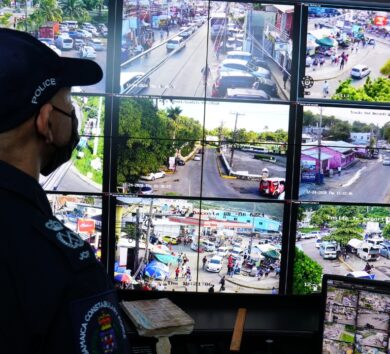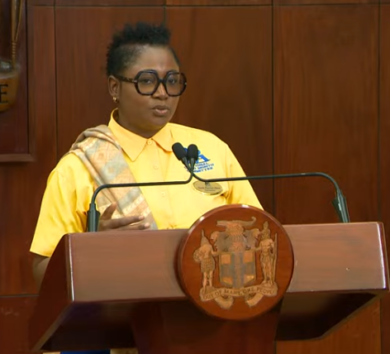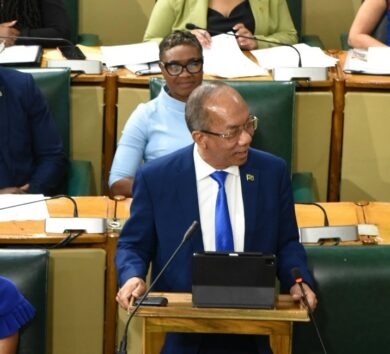

Shadow Minister of Education Damian Crawford has expressed regret that many have wrongfully blamed negative results on teachers while ignoring the realities of the education system and factors that impact student learning.
Crawford stated that there has been great misinformation in the public and a lack of understanding in the conversation about why teachers may have concerns over the Jamaica Teaching Council (JTC), the aim of the JTC Bill, and the motive of the People’s National Party regarding education.
The JTC Bill seeks to formally regulate the Jamaica Teaching Council, which will regulate the teaching profession and teaching licences.
However, the People’s National Party (PNP) has raised concerns that provisions in the bill may impose burdensome requirements on educators. The PNP is also questioning whether the bill is being rushed.
“We’re not against regulation of any kind. What we’re against is how the approach has been taken, seeking almost to put at the feet of our teachers the realities of the negatives that we’re faced with in the outcomes of education,” Crawford said.
He alluded to the last Caribbean Examination Council (CXC) results, citing that only 18 per cent of the students who sat the examination would have come out with five subjects, including Mathematics and English. “That is equivalent to a General Educational Development (GED) in the United States. There would have been no citizen within the United States that would have accepted an 18 per cent GED success rate going forward from the students,” Crawford said.
The World Bank has indicated that in spite of 17 years of spending from the government, the private sector, and parents on education, effective learning is about 11.7 years, he added.
Crawford further noted that many have tried to place those negative indicators at the feet of teachers while ignoring the realities of the education and national systems. “One of the greatest realities or one of the greatest contributors to student underperformance remains unattended to, and that is that of absenteeism.
“Recently, the government reported a return to pre-COVID levels of absenteeism of 22 per cent. The literature suggests that 10 per cent absenteeism is termed chronic absenteeism. At 20 per cent absenteeism, a student is likely to perform in an exam as if he didn’t attend school,” Crawford continued.
However, the minister noted that the Jamaican society celebrated through the Ministry of Education a return to 22 per cent absenteeism, pre-COVID levels. “And that is not the worst case because there are rural areas with 32 per cent and 34 per cent absenteeism and deep rural areas that are reported as having as high as 50 per cent absenteeism. No matter the quality of the teacher, such levels of absenteeism would cause underperformance in education,” he said.
Additionally, Crawford highlighted that according to an international agency, 54 per cent of Jamaican citizens have been reported to have difficulty finding food, whether it is a grave or a slight difficulty. “This has affected many of our children who, while attending school, are incapable of having nutritious meals. We have treated this as a binary impact by causing meals to be given to those who are on PATH and have no consideration for those who are on the fringe of PATH or otherwise. Many of our students facing this kind of food discrimination are incapable of learning in an effective way, and not the teacher’s capacity to teach.
“We also have a difficulty in getting the tools for learning. Even today, while we’re about two weeks from the CXC examinations, there are still schools that have not received their full allotment of rental books that they requested from the government. There are schools that have requested 38 mathematics books and have received seven of those 38 math books that they have requested,” Crawford continued.
Crawford further outlines that unavailable or uninterested parents are another factor that contributes to underperformance. “The Jamaican single-parent reality is 47 per cent. The global average is 17 per cent. So the vast majority, almost 50 per cent of Jamaican children, are facing the circumstances of a single-parent experience, including the lack of an adult at home for many hours of the day, limited resources to fund school, nutrition, and other realities, and the lack of discipline due to the lack of adult intervention on multiple occasions.
“These are only some of the things that have been ignored in totality, so much so that we believe that a teacher’s council is likely to be a panacea for our education system. I put it to you that even to today’s date, there has not been a tabling and a debate of the transformation report for parliament to have a debate around that transformation report. And in spite of having hired the University of the West Indies, Mona Business School to lead the charge as it relates to the research, the recommendation of $21 billion each year for transformation has never been met in the last three years,” Crawford continued.
He also noted that the suggested budget for transformation this year is about $15 million less than the recommendation for transformation. “It is therefore important for us to recognise that the value of our teachers has consistently been proven by the recruitment of overseas persons. Every year, four to five of the greatest countries in the world continue to recruit our teachers, even as far as Dubai,” he said.
Crawford emphasised that the country is losing over 200 teachers per year because of their competence.
“Therefore, the People’s National Party believes that the JTC bill should treat our teachers with trust, with understanding, and with support as opposed to the punitive nature that may cause an increase in migration and for more negatives than positives as far as it goes,” Crawford said.






Comments